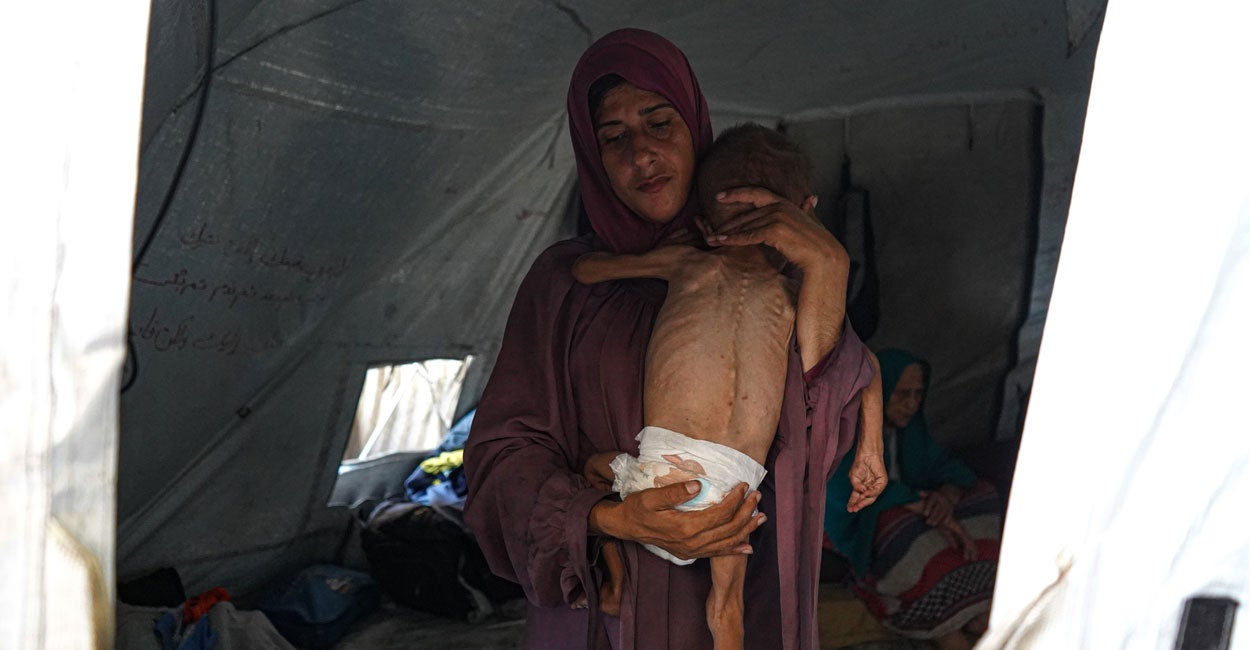


The New York Times has issued an editor’s note over an image the outlet published of an extremely frail child in Gaza. The image of the child, each bone of his rib cage visible, went viral. After publishing the story, the Times learned that the child has “pre-existing health problems.”
“Mohammed, according to his doctor, had pre-existing health problems affecting his brain and his muscle development,” the Times wrote of the 18-month-old child, named Mohammed Zakaria al-Mutawaq.
The child’s health further deteriorated in recent months due to malnutrition and a lack of available medical care in war-torn Gaza, the Times reports in the article titled, “Gazans Are Dying of Starvation.”
Controversy over humanitarian aid continues to mount as world leaders sound the alarm over the threat of famine in Gaza and Israeli Prime Minister Benjamin Netanyahu says there “no starvation in Gaza.”
President Donald Trump reiterated his concerns over starvation in Gaza while speaking to press on Air Force One Tuesday.
“There’s nothing you can say other than ‘it’s terrible’ when you see the kids … those are kids that are starving,” Trump said, adding, “they got to get them food, and we’re going to get them food.”
While on his trip to Scotland earlier this week, Trump pledged to work with European allies to get more aid into Gaza, including setting up “food centers” in Gaza.
Amid the rise in concern over starvation in Gaza, French President Emmanuel Macron says France will recognize Palestine as a state. U.K. Prime Minister Keir Starmer says Britain will do the same “unless the Israeli government takes substantive steps to end the appalling situation in Gaza, agree to a ceasefire, and commit to a long-term sustainable peace, reviving the prospect of a two-state solution.”
Following Starmer’s announcement, Trump was asked if there is “any use at all in pressuring Israel now to come to some sort of longer-term solution,” presumably between Israel and Hamas. The president said such pressure on Israel equates to “rewarding Hamas.”
“You could make the case that you’re rewarding people, that you’re rewarding Hamas if you do that, and I don’t think that they should be rewarded. So, I’m not in that camp, to be honest.”
